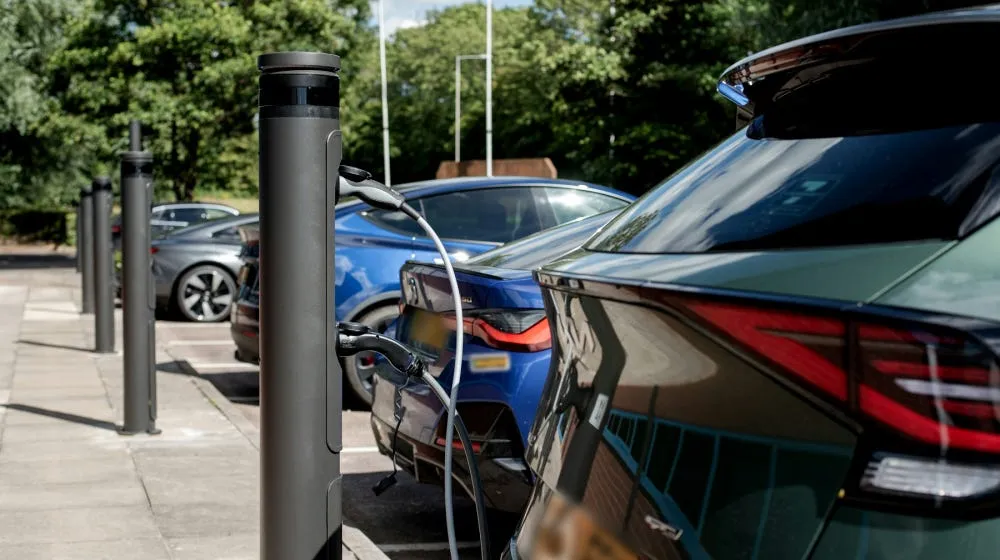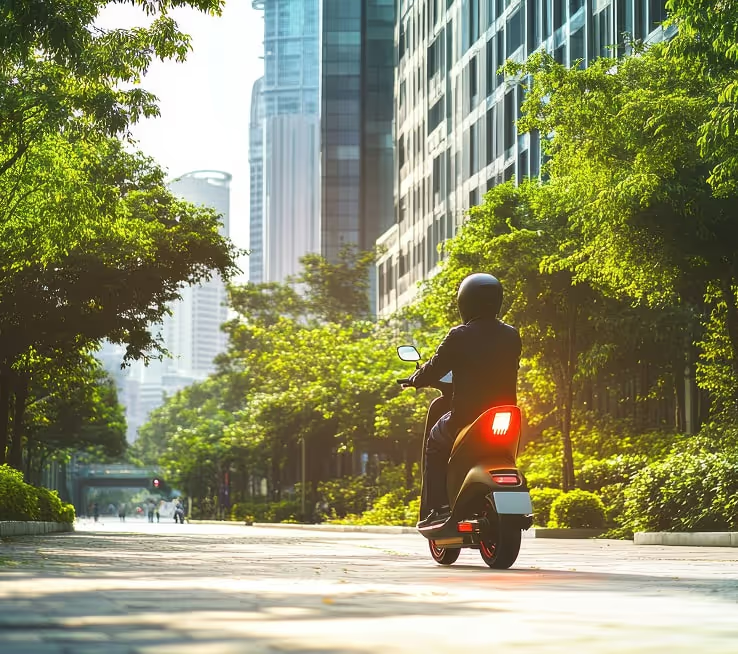One Big Beautiful Bill, A New Direction

A cautionary tale for congestion pricing: Transportation wonk David Zipper travels to Gothenburg, Sweden, a city of 600,000 that implemented modest congestion tolls in 2013. But unlike New York, London, Stockholm and other major cities that implemented similar schemes, Gothenburg didn’t really have a big congestion problem –– the tolls were just a way to raise money for a rail project. As a result, residents don’t appreciate it as much and it remains politically vulnerable.
The One Big Beautiful Bill will end tax credits for EVs and phases out incentives for wind, solar and hydrogen. Besides harming the environment, these policies will make it much harder for America to ramp up electricity generation to meet the enormous demand from AI. In the meantime, China is racing ahead in adding renewable capacity to support its AI ambitions and power next-gen battery-electric vehicles.
The same week, California is reducing the state’s onerous environmental regulations –– at least for projects aimed at advancing clean energy or easing the state’s housing crisis. Another piece of important environmental news comes from Costa Rica, where Latin America’s highest human rights court says its 20 member nations have an obligation to combat climate change.
Meanwhile, Tesla sales continue to plummet and its robotaxi trial in Austin predictably prompts polarized reactions, air taxis are getting very close to becoming a reality in the UAE and Lime prepares to go public next year.
What do you need to know

Buy your EV now: The $7,500 EV tax credit for new vehicles as well as the $4,000 tax credit for used ones will end Sept. 30 as a result of the One Big Beautiful Bill Act signed into law by President Trump.
A big setback for the grid: The Big Beautiful Bill’s gutting of wind, solar and hydrogen incentives could significantly reduce the amount of electricity added to the U.S. grid in the coming years, even as demand mounts from EVs and AI.
Meanwhile, China will continue to race ahead in adding renewable capacity. Republicans counter that America will make up for the reduced renewable growth by boosting natural gas and nuclear energy, but it currently takes up to five years to build a gas-powered plant and building nuclear power is even more cumbersome.
Latin America’s human rights court says states have a climate obligation: In a landmark opinion, the Inter-American Court of Human Rights rules that the 20 countries in its jurisdiction have an obligation to protect their citizens from the effects of climate change. The ruling is not binding, but it is likely to be cited by courts and policymakers in member states.
The sub-$20,000 EV dream is dead: In the wake of the BBB’s passage, Slate Auto, the EV startup backed by Jeff Bezos, is no longer advertising its upcoming pickup truck for “under $20,000.” The company had been counting on the tax credits to make the math work.

California goes for Abundance: Gov. Gavin Newsom signs into law a major reform of the landmark California Environmental Quality Act, exempting infill housing, high-speed rail and advanced manufacturing in industrial districts (e.g. EV plants) from some CEQA review. In recent years, a growing chorus of progressive advocates have argued that CEQA, signed into law by Gov. Ronald Reagan in 1970 to combat smog and protect wildlife, was fueling the state’s housing crisis and in many cases undermining critical environmental investments, including transit and clean energy projects. In a press conference touting its repeal, Newsom name-checked Ezra Klein, the influential columnist and co-author of , which highlights the many ways in which well-meaning regulations are preventing America from building a more sustainable and equitable economy.

eVTOL gain momentum in the Persian Gulf: Archer Aviation, the San Jose air taxi startup, completes a successful test flight of its Midnight eVTOL in Abu Dhabi. There’s still more testing to be done, but both the company and government officials are expressing confidence about commercial deployment in the near future. This comes a week after LODD, a UAE-based firm that has developed autonomous cargo drones, kicked off its first parcel delivery trial in Abu Dhabi. The government has made a big point of supporting the eVTOL space, backing startups like Archer and LODD through its investment fund and designing regulations to nurture the nascent industry. Joby Aviation, another California-based eVTOL startup, similarly has plans to launch commercial service in Dubai next year and has partnered with Saudi investment conglomerate Abdul Latif Jameel.

Pierfrancesco Maran MEP hosted an event on ‘Autonomous Vehicles in the EU’ last week with the European Commission and key industry players. CoMotion was delighted to partner on this event and to contribute to the program!
Pierfrancesco: "We must build a distinctly European model of autonomous driving— one that positions AVs as a cornerstone of a new vision for mobility, going beyond private car ownership and helping to fundamentally transform public transport services. To achieve this, we urgently need to launch large-scale testbeds, harmonise testing and deployment rules, and concentrate public funding on a limited number of high-potential initiatives to attract private investments."

The Tesla Rorschach test: Views of Tesla’s robotaxi trial in Austin are highly polarized, reflecting what TechCrunch’s Rebecca Ballen and Kirsten Korosec describe as the “Tesla Rorschach test.” To Tesla bulls, the trial proves the automaker can do autonomy and lends credence to Elon Musk’s promise to create a multi-trillion dollar robotaxi empire. Others are seizing on videos of driverless Teslas committing driving infractions, saying that it proves the company is far behind the likes of Waymo in its autonomous ambitions.
…meanwhile, Tesla sales plunge again: Q2 deliveries dropped 13.5% compared to last year, underscoring why Tesla needs these robotaxis to work to maintain its trillion dollar valuation.
China’s fast-rising EV brands: An analysis of China’s burgeoning EV sector by consultancy AlixPartners projects that 15 Chinese EV brands will account for three-quarters of domestic EV sales 2030, significantly marginalizing the foreign brands that have historically dominated the Chinese auto market. The Chinese brands, led by the likes of BYD and Li Auto, will also double their market share in Europe to 10%, prompting European automakers to reduce production. How well they will do in North America, however, is harder to predict. BYD just canceled plans to build a plant in Mexico, citing the China-U.S. trade war.
Is logistics the new gig? UniUni, the gig-driven Canadian logistics startup, secures $70 million in a Series D round led by Bessemer Venture Partners to fuel its North American expansion—bringing total funding raised in just over a year to more than $200 million. The company, which relies on gig workers making home deliveries from warehouses in their personal vehicles, has become a valuable delivery partner in North America for Chinese e-commerce giants like Shein, Temu and AliExpress.
Lime expects IPO next year: The micromobility firm hires Goldman Sachs and JPMorgan Chase to prepare an IPO in 2026. The eight-year-old company now operates in 280 cities across 30 countries and reported a 32% increase in net revenue last year, its second year of cash flow positivity. So things are looking up for Lime, despite getting kicked out of Brussels.

